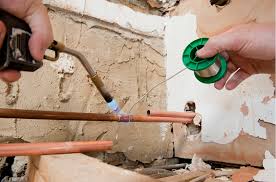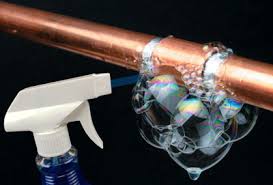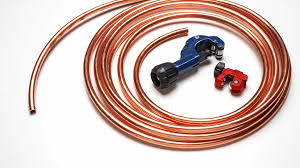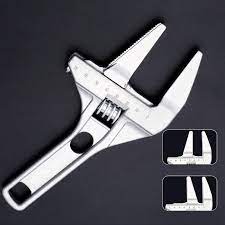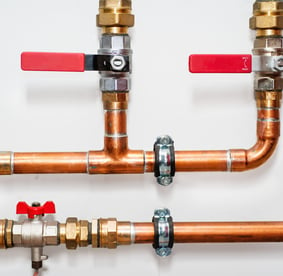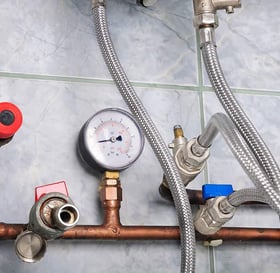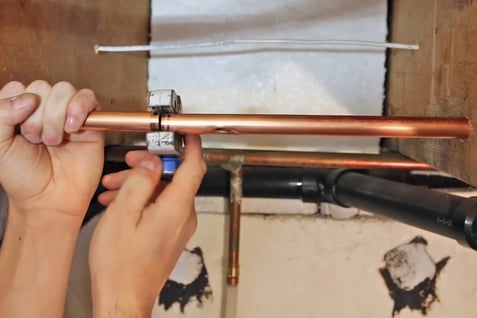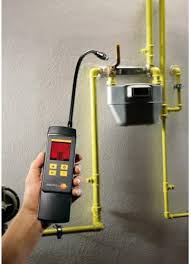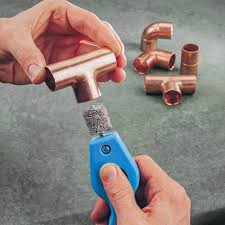Best Tips for Maintaining Your Home LPG Gas Pipeline Installation
A copper gas pipeline installation is a reliable and efficient choice for any home, but maintaining it requires regular care and awareness.
A well-maintained gas pipeline installation is crucial for home safety and efficiency, especially when using LPG (liquefied petroleum gas) in residential settings. Many homeowners choose copper for their gas pipeline installation due to its durability, flexibility, and resistance to corrosion. However, even the best copper gas pipelines require regular maintenance to ensure they remain in top condition. This guide will take you through essential maintenance tips, from visual inspections to professional check-ups, to help you keep your copper gas pipeline installation safe and efficient for years.
Why Copper is a Smart Choice for Copper Gas Pipeline Installations
Copper is renowned for its durability and resistance to corrosion, making it an excellent material for gas pipelines. It’s also flexible, allowing it to withstand some environmental pressures better than other materials. Furthermore, copper pipes are resistant to fire and high temperatures, adding a layer of safety. However, for copper pipelines to perform optimally, routine maintenance and care are necessary.
1. Conduct Regular Visual Inspections
Conducting regular visual inspections of your copper gas pipeline is one of the simplest yet most effective ways to maintain it. Every few months, check the exposed parts of the pipeline for:
Corrosion Spots: Copper is corrosion-resistant, but certain conditions, such as exposure to acidic environments, can lead to corrosion.
Discoloration: Green or black spots on copper pipes may indicate oxidation or exposure to moisture.
Leaks: If you detect any hissing sounds or smell gas, these could be signs of a leak.
2. Test for Gas Leaks
Gas leaks are not only dangerous but can also indicate that your copper gas pipeline needs repair. Here are two common ways to check for leaks:
Soap Solution Test: Mix soap and water, apply it to joints and fittings, and look for bubbles, which indicate a leak.
Gas Leak Detector: Investing in a small, portable gas leak detector can make this step simple and accurate.
3. Schedule Annual Professional Inspections
While DIY inspections are beneficial, an annual check by a certified professional adds an expert’s perspective. Professionals use advanced equipment to detect potential issues, such as leaks or weak points. They can also check for pressure consistency and may recommend upgrades to certain components if needed.
4. Keep Pipe Seals Tight and Secure
Pipe seals, especially those near joints and fittings, are essential for maintaining an airtight gas pipeline. Over time, these seals can loosen or wear down, which can lead to leaks. To ensure proper sealing:
Check and Tighten: Periodically check the seals and fittings to make sure they’re tight.
Replace Worn-Out Seals: If you notice any wear, especially in rubber seals, replace them promptly.
5. Protect Pipes from Moisture and Chemical Exposure
Moisture and chemicals can degrade copper over time. To avoid this, it’s crucial to:
Avoid Chemical Exposure: Keep household chemicals away from pipes to prevent unexpected reactions.
Reduce Moisture: Moisture can cause external corrosion, so install ventilation in enclosed spaces with copper pipes, such as basements or kitchens.
6. Clean the Pipes Regularly
Dust and grime can accumulate on copper pipes, affecting their appearance and potentially leading to corrosion. Regularly cleaning the pipes helps maintain their integrity and performance.
Dusting: Use a dry or slightly damp cloth to remove dust.
Avoid Harsh Chemicals: When cleaning, avoid harsh chemicals as they might damage the copper’s protective layer.
7. Monitor Gas Pressure Levels
Maintaining consistent gas pressure levels is essential to prevent damage. High gas pressure can put stress on the pipeline, while low pressure can reduce efficiency. Installing a gas pressure regulator is recommended to help control pressure levels and reduce the strain on your copper gas pipeline installation.
8. Invest in Safety Gadgets
There are several safety gadgets that you can install to ensure your home remains safe and secure:
Gas Leak Detectors: These devices can provide early warnings in case of leaks.
Smoke and Carbon Monoxide Detectors: Additional safety devices, such as these, can be lifesaving.
Automatic Shut-Off Valves: In the event of a severe gas leak, these valves can cut off the gas supply, preventing accidents.
9. Replace Aging Pipes and Components
Copper pipelines are durable, but if they’re older or show signs of wear, they may need to be replaced. Signs that now it’s the best time for an upgrade include:
Persistent Leaks: Frequent minor leaks might indicate that the pipes are aging.
Discoloration and Weakness: Weak sections in the pipeline can lead to problems down the line.
Conclusion
A copper gas pipeline installation is a reliable and efficient choice for any home, but maintaining it requires regular care and awareness. From visual inspections and gas leak tests to professional check-ups, keeping your copper gas pipeline well-maintained ensures safety, durability, and peace of mind. Follow these tips, and your LPG system will remain secure and efficient for years to come.
FOR MORE INFO CALL US +918522092525
OUR WEBSITE : https://vaultgaspipeline.com

